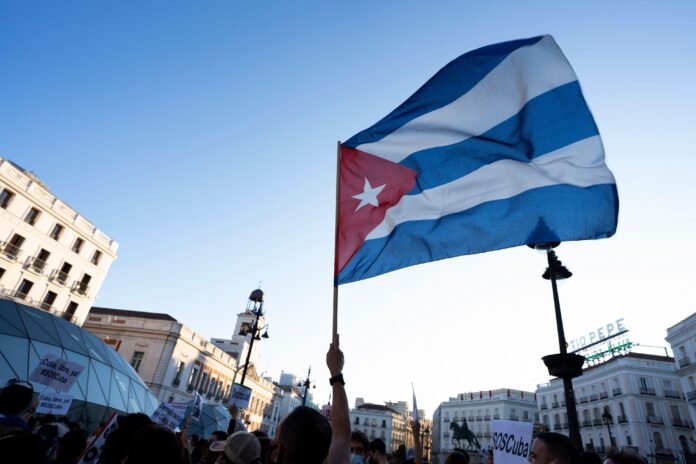Cuban and Cuban-US artists including Tania Bruguera and Coco Fusco have signed an open letter urging the international art world to focus on “the Cuban government’s repression of its artists, its persistent human rights violations and the country’s humanitarian crisis”. The 24 artists, scholars and arts figures also call on the art world to boycott cultural events organised and funded by the Cuban government.
In the letter, first published in Hyperallergic, the signatories—who also include the artists Hamlet Lavastida and Sandra Ceballos—highlight other art world ethical issues, saying for instance that “artists, activists, and investigative cultural journalists have forced institutions to reflect on the ethics of accepting support from companies and individuals that profit from fossil fuels, weapons manufacturing, and highly addictive pharmaceuticals”.
The signatories also highlight the recent controversy in Turkey regarding the dismissal of Defne Ayas as curator of the 2024 Istanbul Biennial. The crisis in Cuba has not however “received enough scrutiny to provoke similar concern about the ethics of co-operating with the Cuban state.”
The 24 signatories subsequently call for a boycott of state-sponsored cultural events on the island, pointing to the forthcoming Havana Art Weekend due to be held in November, which according to the official event website is a “vibrant four-day extravaganza that transforms Havana into an international hub for art enthusiasts and professionals alike”. In an email to The Art Newspaper, the event’s organisers refuted the suggestion of government links, stating that “Havana Art Weekend is an independent initiative with no affiliations or sponsorships from the Cuban Ministry of Culture or the Cuban government.” They added that for the upcoming edition they are “maintaining [Havana Weekend’s] independent nature by hosting the programme exclusively in artists’ private studios and other non-governmental spaces.”
The open letter’s signatories are clear on what they see as the scale of governmental and institutional involvement in repression, however. “It is imperative that foreigners recognise that the repression of artists is carried out by the same cultural bureaucrats who welcome them to the island, introduce them to a select number of trusted artists and arrange their visits to state-run art galleries,” the letter adds.
The signatories say also that “more than 1,000 political prisoners are currently serving outrageously long sentences for peaceful protest, and among them are several of our fellow artists”, a move criticised by organisations such as Amnesty International and Human Rights Watch.
Earlier this year, the Cuban artist and activist Luis Manuel Otero Alcántara, who is being held in jail in Cuba, appealed “to people of conscience around the world to support our struggle to liberate ourselves and our country” in an article published in the Miami Herald newspaper. Alcántara is detained in Guanajay, a maximum-security penitentiary southwest of Havana. The publication of his comment piece marked two years since he was arrested when anti-government protests swept the country.
Meanwhile, a new penal code, which includes harsher social media censorship rules, was enforced in Cuba last December, according to Hyperallergic. “The new penal code stipulates that Cuban citizens can be imprisoned for up to two years for posting criticism of the government on social media, receiving outside funding for independent cultural activities, or engaging in activities that could be construed as interference in government operations,” says the letter. The Cuban Embassy in London was contacted for comment.

























